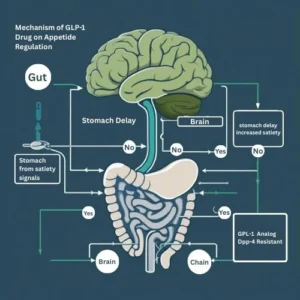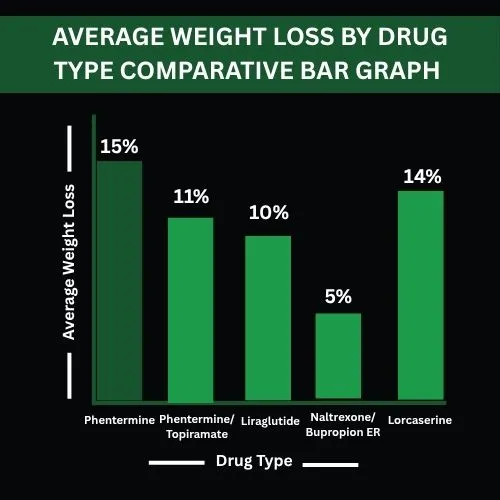Prescription weight loss solutions are offering hope to people in a world that has now made obesity a global health issue, with many people looking to prescription weight loss solutions when diet and regular exercise just are not enough. Yet, just as there is an ample amount of medication on the market, there is one crucial question: just how do these treatments actually work?
Let us demystify the science, life intention, and mechanism of prescription weight loss procedures so that you get to make a well-educated choice should you be looking in that direction.
What are the prescription weight loss medications?
Prescription weight loss therapy (also referred to as anti-obesity medication) refers to a category of drug that doctors can prescribe to a patient who is seeking help in managing excess weight, especially where it is associated with additional health disorders such as high blood pressure, type 2 diabetes, or sleep apnoea.
The medications are typically designed to treat individuals who have:
• BMI of 30 or more or
• BMI of 27 or more, provided that one of the weight-related conditions is present.
What Do These Drugs Do?
Most prescription drugs used in weight loss have varying effects depending on the active ingredients and mechanisms of action. We need to have a closer look at the two chief categories:
1. Appetite Suppressants
These drugs affect the appetite-controlling parts of the brain, in particular, the hypothalamus. They increase the amounts of neurotransmitters and make you feel full and stay full of norepinephrine and serotonin really quickly.
Examples: phentermine, diethylpropion
2. Fat Blockers Gastrointestinal
These medications head off your body absorbing certain parts of the fat that you consume. The fat does not get stored in the body but rather goes through your digestive tract and comes out.
Orlistat (Alli, Xenical)

3. GLP-1 Receptor Agonists
The greatest breakthrough of the last few years, however, is GLP-1 drugs (such as Wegovy or Saxenda) that are replicas of a natural hormone that enters parts of the brain controlling appetite. These medications can reduce the hunger, enhance the feeling of satiety, and decrease the emptying of the stomach, and, thus, they cause the consumption of less food and the loss of weight.
Semaglutide (Wegovy): liraglutide (Saxenda)
4. Combination Medications
There are certain combinations of mechanisms in the use of drugs to have improved outcomes. As an example, weight loss can be more sustained and more even at higher rates by a combination of weight loss and satiety benefits.
Examples: Phentermine/Topiramate (Qsymia), Bupropion/Naltrexone (Contrave)

The Expected Results of Prescription Treatments
There should be realistic expectations. Most prescription medicines assist patients in shedding 5-15% of their body weight over a period of several months. Although that may not seem like much, even 5 percent weight loss can make a great deal of difference by reducing the level of blood sugar, blood pressure, and cholesterol.
These therapies are not short-term cures. They also prompt devotion, medical management, and lifestyle modification to be successful and lasting. They too, like any drug, have side effects such as nausea, constipation, headache, increase in heartbeat, or sleeplessness depending on the drug.
Are They Safe?
Most of the time, yes, when people use it within the constraints of medical supervision. Prescription drugs are tested thoroughly and given approval by national health authorities, including the FDA or EMA. Nevertheless, they are not friendly to all people.
Do not take these drugs when you are not supposed to take them.
• Expectant or nursing
• Diagnosed with some heart diseases or uncontrolled blood pressure
• Use of drugs that could have adverse effects
It is because of this that consultation with a healthcare provider is very important. The health care providers will also look at your health history and objectives and the possibility of taking weight loss medicine.
The Bottom Line
Prescription weight loss therapy can be a very useful option for the individual who is having trouble with obesity and has not been successful in using diet and exercise. They affect the natural appetite of the body or fat absorption or the hormonal pathways it works with, but they are mostly effective when used in combination with lifestyle changes.
Whenever beginning a treatment, it is absolutely crucial to talk about it with your doctor, consider both the dangers and the rewards of treatment, and say adieu to a lifestyle plan aimed at living a healthy life long-term. Prescription weight loss drugs can provide a significant leg up, but in the long term, healthy weight management is all about establishing habits that are supportive of your body and your mind.

Leave a Reply